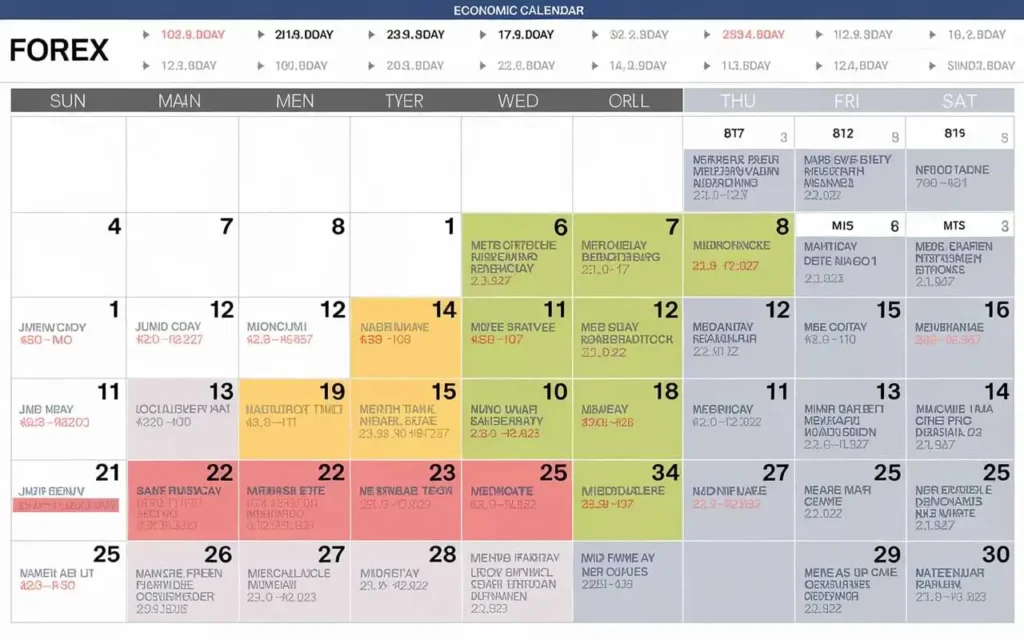ECONOMIC CALENDAR
Key Economic Indicators to Watch
Some of the most important economic indicators for forex traders include:
These indicators provide valuable insights into a country's economic performance and monetary policy direction, which can significantly influence currency valuations. Traders should pay close attention to these releases and their potential impact on relevant currency pairs.
Importance of Economic Calendars
Economic calendars are essential tools for forex traders, providing crucial information about upcoming economic events and data releases that can impact currency markets. These calendars help traders anticipate potential market volatility and make informed decisions about their trading strategies. By tracking key indicators such as GDP reports, employment figures, and interest rate decisions, traders can better understand the economic health of various countries and predict potential currency movements.


How to Use an Economic Calendar?
To effectively utilize an economic calendar, forex traders should focus on high-impact events that are most likely to cause significant market reactions. It's important to note the date, time, and expected outcomes of these events. Traders can then compare the actual results to market expectations, which often determine the extent of currency pair movements. Additionally, understanding the historical impact of specific events on particular currency pairs can help traders develop more accurate predictions and risk management strategies.
Key Components of an Economic Calendar
An economic calendar is a powerful tool for traders and investors, providing essential information about upcoming economic events and data releases. Understanding its key components is crucial for effectively utilizing this resource in your trading strategy.
Types of Events Included
Economic calendars encompass a wide range of events that can influence financial markets. Key economic indicators such as GDP, inflation rates, and employment figures provide insights into a country's economic health.
Central bank announcements, particularly regarding interest rates and monetary policy, often trigger significant market reactions. Corporate earnings reports offer valuable information about company performance and sector trends. Additionally, geopolitical events like elections, trade negotiations, and international conflicts can have far-reaching impacts on global markets.
